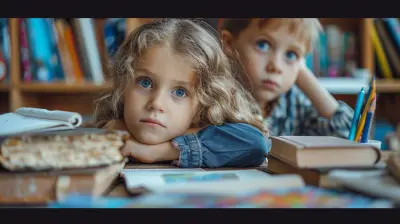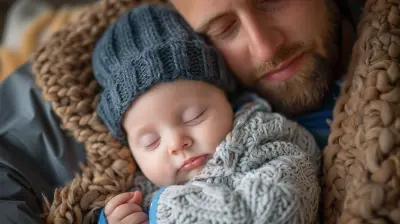Nurturing Cognitive Growth: How Babies Learn Through Play
23 June 2025
Have you ever watched a baby go from blank stares to curious coos, and then to babbling and crawling with endless excitement? It’s amazing, right? But what’s even more incredible is how they get from "just born" to little explorers. Here’s a secret: it's all through play.
Yep, play isn’t just cute, and it's not just for fun—it’s absolutely essential. Play is the real MVP behind your baby’s brainpower. While we often see it as just giggling with a rattle or stacking blocks, to a baby, it’s intense, purposeful work. From the first smile to peekaboo and pretend tea parties, every playful moment is shaping their developing mind.
Let’s dive into how your little one’s brain grows through play and how simple activities can boost their cognitive growth in powerful ways.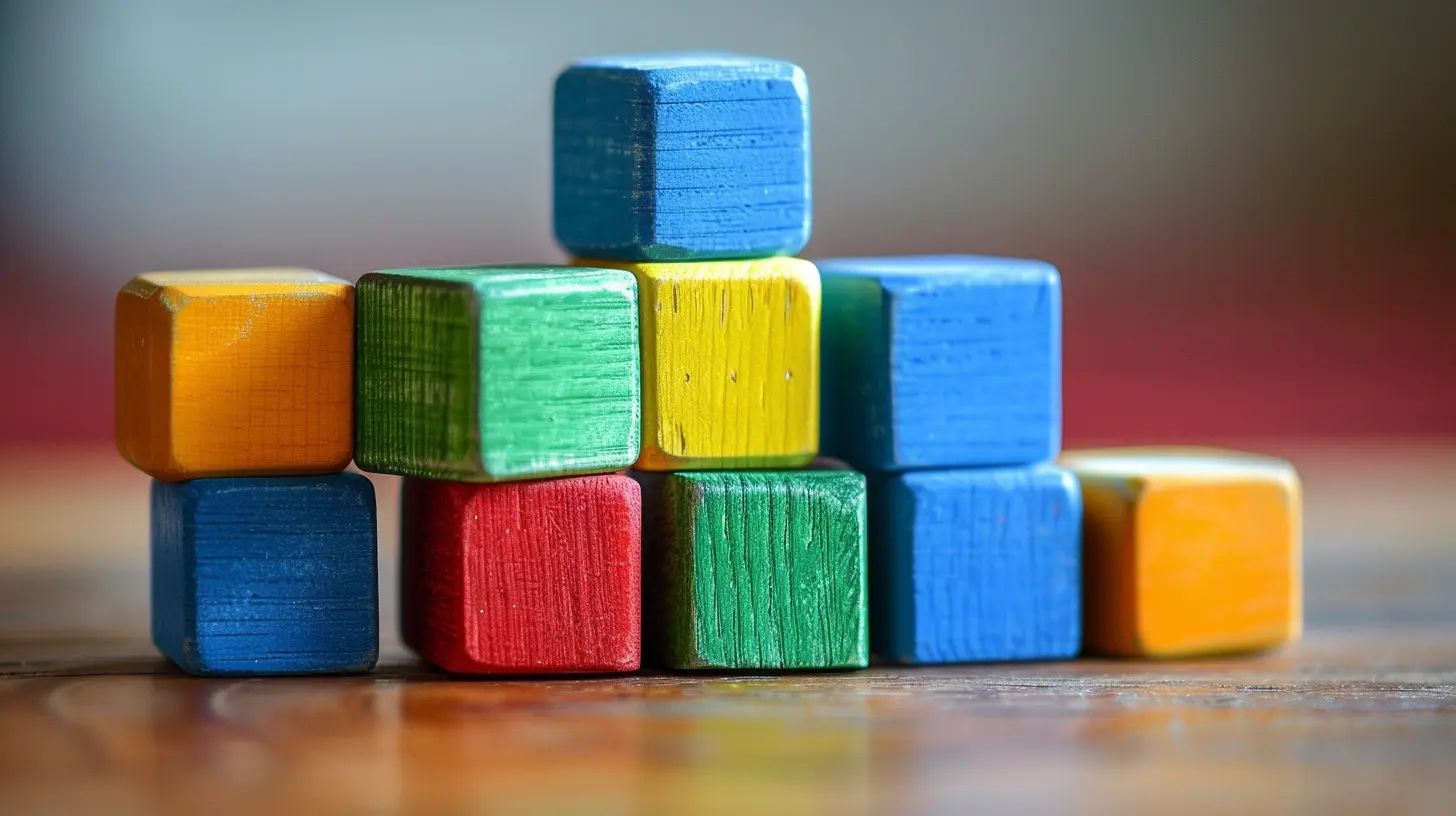
What Does Cognitive Growth Even Mean?
Think of cognitive growth as the way babies learn to think, understand, remember, and solve problems. It’s what allows them to recognize your face, find their favorite toy, or babble their first "mama" or "dada." Cognition includes everything from language development to memory, attention, and even creativity.Now, babies don’t sit down and study from a textbook (thank goodness). Their classroom? Your living room. Their curriculum? Play.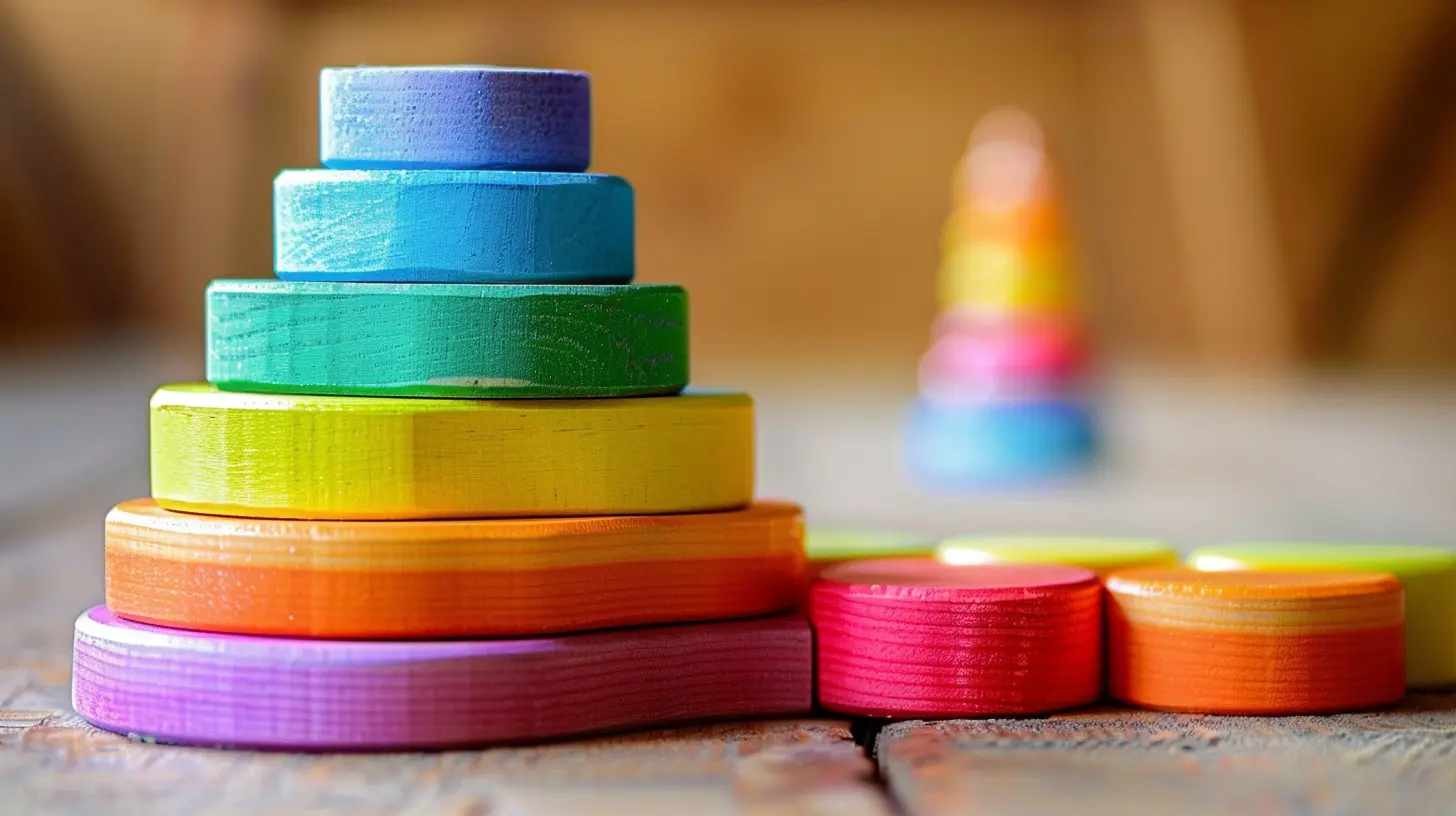
Why Play Is the Brain’s Favorite Workout
Play is like a supercharged brain gym. When babies play, they’re not just having fun—they're building brain connections at lightning speed. Every sound, movement, texture, or game is like coding new software into their little mental hard drive.Here’s the deal: the brain grows by forming connections, called synapses. The more positive experiences a baby has, the more of these connections they form. And guess what? Play offers a goldmine of such experiences!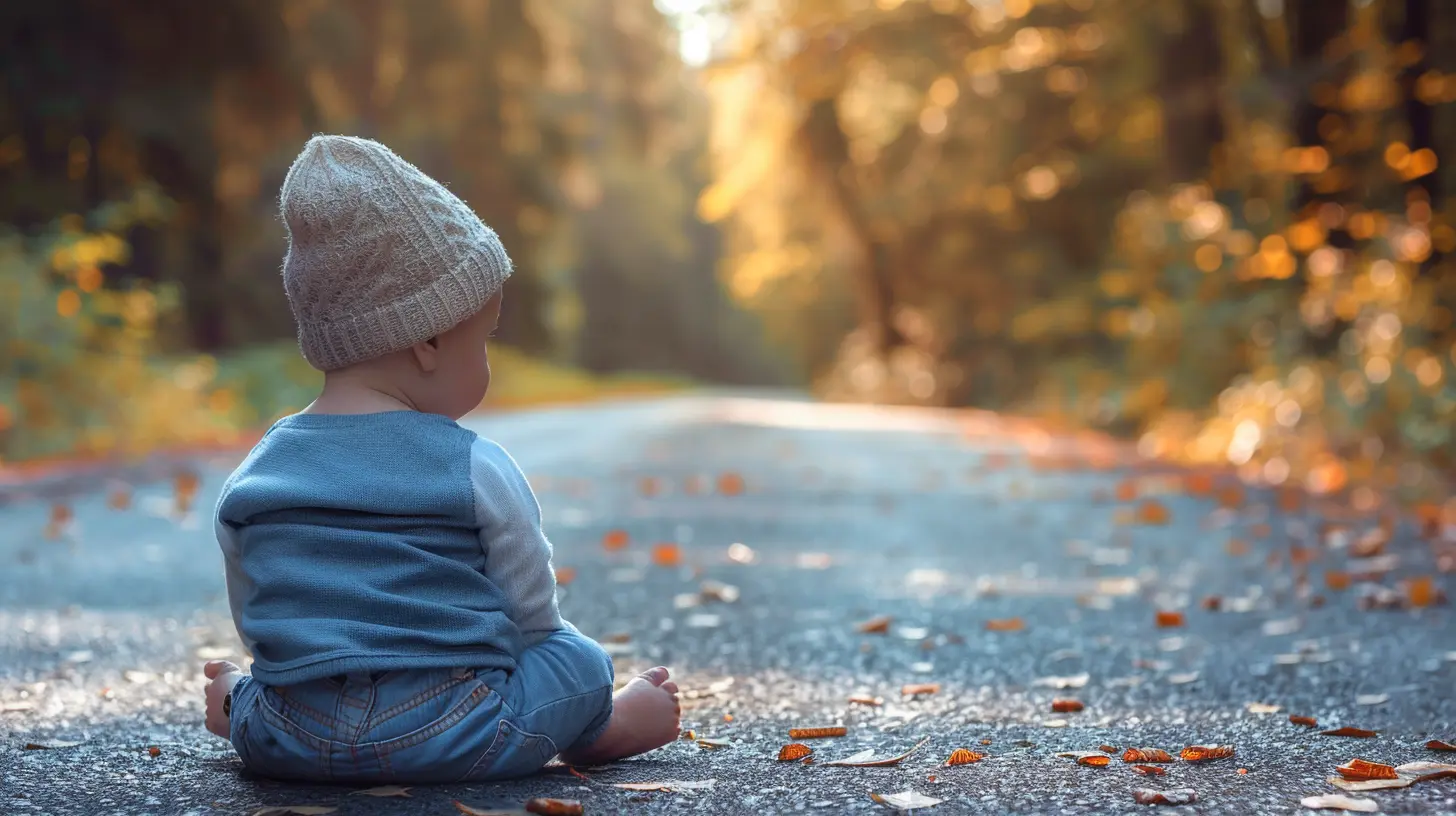
The Different Stages of Play (Yes, There’s a Timeline!)
You might be wondering—do all babies play the same way? Nope. They evolve. Just like walking and talking, play develops in stages.0-3 Months: Sensory Play
At this stage, everything is brand new. Babies are getting used to the world around them.- Best types of play: Soft music, black and white contrast cards, gentle touch, singing lullabies.
- What’s happening in their brain? They're learning to focus, recognize faces and voices, and respond to stimuli.
Tip: Use high-contrast toys—it helps stimulate their vision!
3-6 Months: Grasping and Giggling
Babies now start exploring with their hands and mouths (yes, everything goes into the mouth!).- Best types of play: Rattles, textured toys, tummy time adventures.
- Brain boost: They're discovering cause and effect—“If I shake this, it makes a sound!”
Try this: Dangle a toy just out of reach and watch them go for it. That determination is brain power in action!
6-12 Months: Movers and Shakers
Now they’re sitting, crawling, maybe even standing! This is when their world really opens up.- Best play ideas: Stacking toys, peekaboo, safe mirrors, simple hide-and-seek.
- Cognitive perks: Object permanence, problem-solving, and memory development.
Ever notice how they keep dropping the spoon over and over? That’s not mischief. That’s a science experiment in gravity!
12-24 Months: Little Explorers
Toddlers now engage in more interactive play and are trying to talk… a lot.- Go-to games: Pretend play, building blocks, sorting shapes, water play.
- Why it matters: They’re starting to understand symbols, build vocabulary, and think creatively.
Play kitchen sets? Magical. They imitate you cooking, and that's roleplay + memory + creativity, all rolled into one.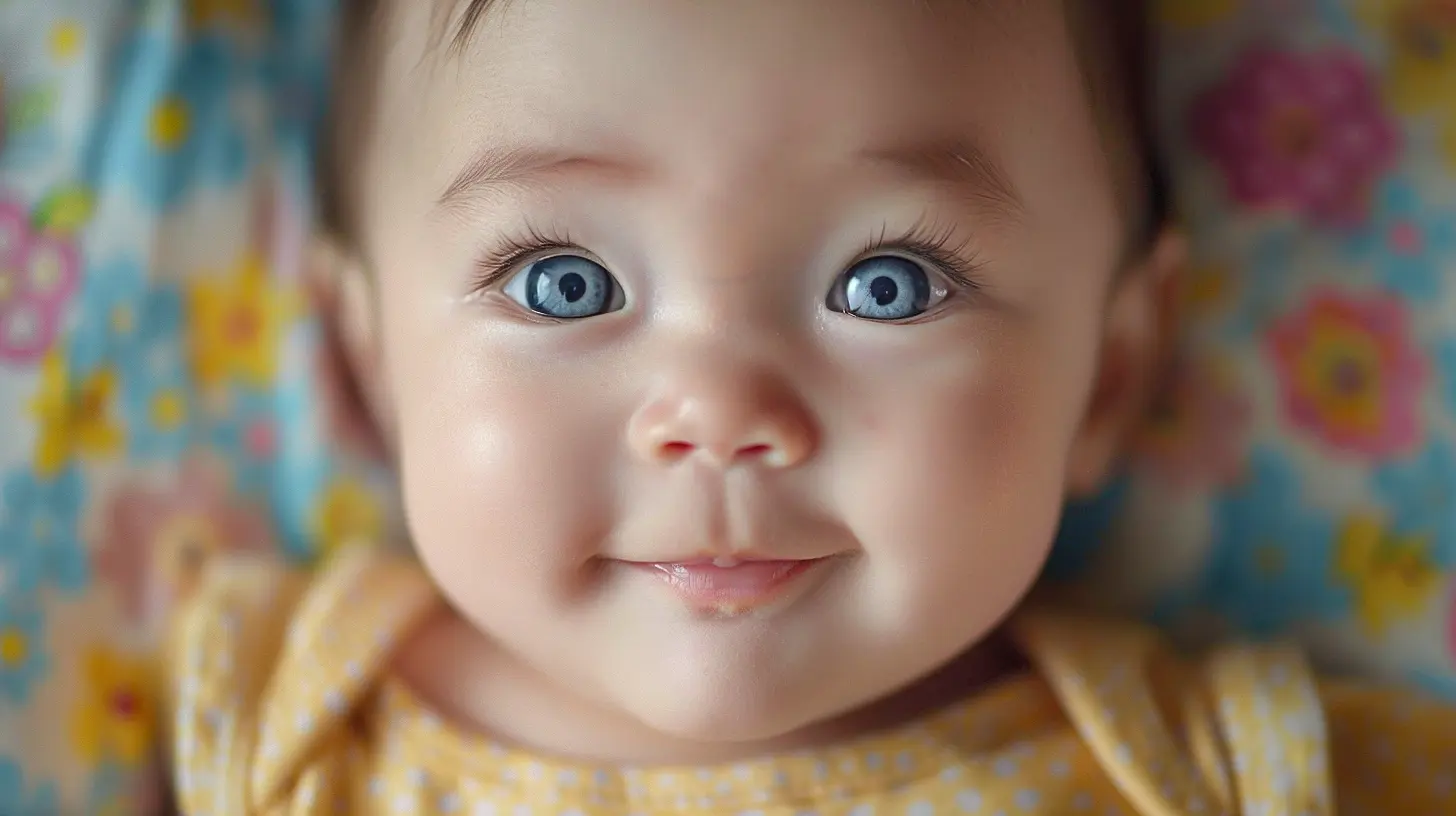
How Different Types of Play Help Baby’s Brain
Just like nutrients in food, babies need a variety of play types to fuel different parts of the brain.1. Sensory Play
Sensory play is all about engaging the five senses. You’ve probably seen babies squish slime or splash in water. Sensory play helps with:- Brain development
- Fine motor skills
- Language by labeling textures (“soft,” “squishy,” “wet”)
DIY idea: Fill a bin with dry pasta, spoons, and cups. Instant sensory win!
2. Physical Play
All that wiggling, crawling, and climbing? That’s physical play firing up their motor skills.- Builds spatial awareness
- Teaches balance and coordination
- Encourages confidence and risk-taking in a safe way
Fun activity: Set up a mini obstacle course with pillows and tunnels.
3. Constructive Play
Building blocks or stacking cups might seem simple, but they teach:- Spatial reasoning
- Cause and effect
- Planning and precision
Remember: When a tower falls, that's not failure. It’s physics!
4. Pretend Play
Also called imaginative play, this is when your child starts to take on personas—like being a doctor, superhero, or a dragon.- Boosts creativity
- Encourages language development
- Builds empathy
Parent hack: Join in and follow their lead. It’s not just cute—it’s bonding and brain food.
The Parent's Role in Play (You're the Secret Sauce!)
You might think your baby just needs toys. Spoiler alert: they need you more.Interaction is key. It’s not about expensive gadgets or a room full of toys—it’s about connection.
- Talk with them constantly, even if they can’t talk back yet.
- Follow their curiosity—if they keep going back to a toy, explore it with them.
- Narrate your actions: “I’m pouring your milk” teaches language and sequencing.
And hey, if you don’t know how to play sometimes, that’s totally normal. The best play happens when you’re present and involved—not perfect.
Screen Time vs. Play Time: What's the Right Balance?
Let’s talk tech for a sec. In our screen-saturated world, it’s tempting to hand your phone to a wailing baby. We've all been there.While a little screen time is okay in moderation after 18 months (as per pediatric guidelines), nothing beats real, hands-on, people-powered play. Screens can’t replicate the richness of face-to-face interaction, touch, or real-world exploration.
So, when in doubt, trade Peppa Pig for peekaboo.
Creating a Play-Friendly Environment at Home
You don’t need a giant playroom to support cognitive growth. A few mindful tweaks go a long way.- Safe and open space: Let them move and explore freely.
- Toy rotation: Keep a few out at a time and swap them weekly. Less clutter = more focus.
- Natural materials: Wooden toys, fabrics, and textures help engage the senses.
And don’t stress about mess—a messy play area is often a sign of a brain working hard!
Signs Play Is Fueling Their Development
Worried whether your baby is learning enough? Don’t sweat it. There are subtle (and exciting) signs that show their brain is making magic:- They react differently to familiar vs. new toys
- They repeat actions they find fun or interesting
- They start to anticipate (like smiling before the jack-in-the-box pops up)
Each giggle, reach, and babble is a mental high-five. You're doing great. And so are they.
When to Seek Support
All babies develop at their own pace, but if you notice major delays—like not responding to sounds, not showing interest in play, or not attempting to crawl or babble—check in with your pediatrician. Early intervention can make a big difference, and you’re your baby’s best advocate.Remember: the goal isn’t to rush development. It’s to create a joyful space where learning feels natural, loving, and fun.
Final Thoughts: Play Is the Language of Baby Brilliance
Here’s what I want you to take away: Play is powerful. It’s not something you do in your free time—it is the way your baby learns. Every silly face, every block tower, every tickle fight is building their brain.So lean into the mess, embrace the giggles, and know that every playful moment is planting seeds of creativity, confidence, and curiosity.
Their future brilliance? It starts right here, on the play mat with you by their side.
all images in this post were generated using AI tools
Category:
Infant DevelopmentAuthor:

Maya Underwood
Discussion
rate this article
2 comments
Pamela Kearns
What a delightful read! Your insights on how play fosters cognitive growth in babies are so valuable for parents. Thank you for sharing these wonderful tips to encourage learning through fun!
October 26, 2025 at 4:24 AM

Maya Underwood
Thank you so much for your kind words! I'm glad you found the insights valuable for supporting cognitive growth through play.
Lanae Wood
Play is essential for cognitive development; it fosters problem-solving, creativity, and social skills in babies.
June 23, 2025 at 4:22 AM

Maya Underwood
Absolutely! Play is a crucial element in early development, as it stimulates problem-solving abilities, creativity, and social interactions in babies, laying the foundation for lifelong learning.

